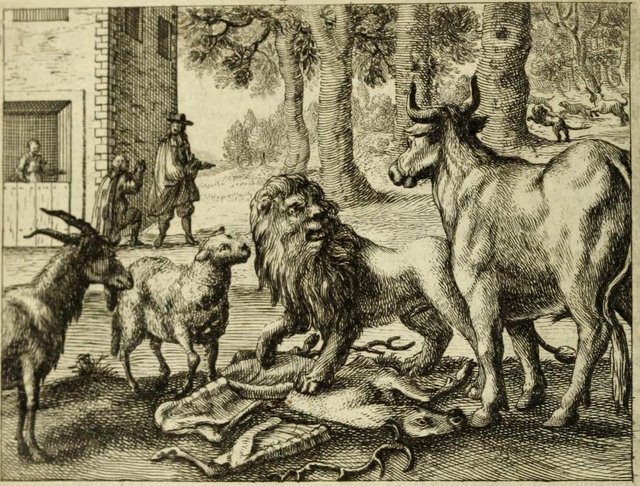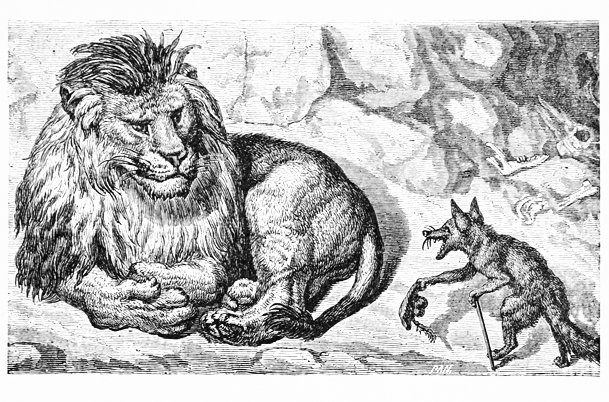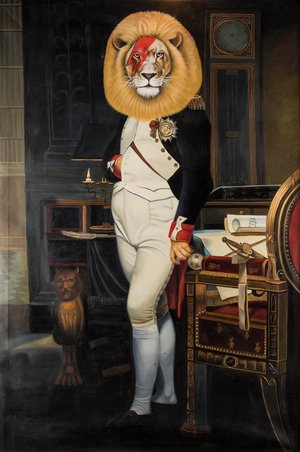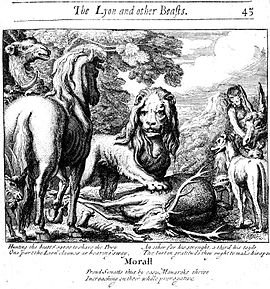Lion's Share Day is observed July 22nd every year.

Lion's share is the largest part or share, especially a disproportionate portion.
https://www.checkiday.com/e7b0d4ca324c00d548c6f0175175648f/lions-share-day
The popular expression "Lion's share" comes from an an Aesop fable.
The lion's share is an idiomatic expression which refers to the major share of something. The phrase derives from the plot of a number of fables ascribed to Aesop and is used here as their generic title. There are two main types of story, which exist in several different versions. Other fables exist in the East that feature division of prey in such a way that the divider gains the greater part - or even the whole
The Phaedrus version
Latin reference to Aesop's fable is found at the start of the Common Era, where the phrase societas leonina (a leonine company) was used by one Roman lawyer to describe the kind of unequal business partnership described by Aesop. The early 19th century writer Jefferys Taylor also retold the fable in terms of a commercial enterprise in his poem "The Beasts in Partnership":
This firm once existed, I'd have you to know,
Messrs Lion, Wolf, Tiger, Fox, Leopard & Co;
These in business were join'd, and of course 'twas implied,
They their stocks should unite, and the profits divide.

The Babrius version
This alternative fable was given a different reading by the 13th century Persian poet, Rumi in his Masnavi. He began by orienting the reader to interpret the fable in a spiritual sense:
Melt away your existence, as copper in the elixir, in the being of Him who fosters existence.
You have fastened both your hands tight on 'I' and 'we': all this ruin is caused by dualism.
Eastern variation - Dabbhapuppha Jataka
Features different animals but has at its centre the same situation of an animal making an unequal division. Here a jackal offers to arbitrate between two otters who are quarrelling over a fish they have co-operated in bringing to land. The jackal awards them the head and tail and runs off with the bulk of their catch. As well as being a condemnation of the greed that leads to strife, the tale takes a sceptical view of how the powerful frame the law to suit themselves, concluding with the satirical verse,
Just as, when strife arises among men,
They seek an arbiter: he's leader then;
Their wealth decays and the king's coffers gain.

The Fox and the Lion- Eliot/Jacobs Version
When first the Fox saw the Lion he was terribly frightened, and ran away and hid himself in the wood. Next time however he came near the King of Beasts he stopped at a safe distance and watched him pass by. The third time they came near one another the Fox went straight up to the Lion and passed the time of day with him, asking him how his family were, and when he should have the pleasure of seeing him again; then turning his tail, he parted from the Lion without much ceremony.

Leo et Vulpes Territa
Vulpes, cum numquam leonem vidisset, postquam olim forte in eum incidit, primo quidem intuitu ita perterrefacta est ut parum abfuerit quin periret. Rursus autem eodem obviam reperto, tunc etiam, sed non ut antea, timuit. Tertio demum ipsum conspicata, audax ita fuit ut, accedens, cum eo colloqueretur.
Moral
Quae terribilia sunt, consuetudo blandiora reddit.
The Lion, the Bear and the Fox
One of Aesop's Fables that is numbered 147 in the Perry Index. There are similar story types of both eastern and western origin in which two disputants lose the object of their dispute to a third.
We strive as did the two hounds for the bone,
They fought all day, and yet their part was none;
There came a kite by, while that they were wrath,
And bore away the bone between them both.


Hi! I am a robot. I just upvoted you! I found similar content that readers might be interested in:
https://aesopsfables.wordpress.com/lions-share/
Downvoting a post can decrease pending rewards and make it less visible. Common reasons:
Submit